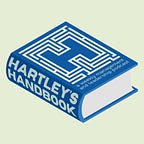Welcome back to Ask Hartley Anything, the podcast where I take your questions and share insights from my experience as an engineering leader. With 15 years in the software industry, eight of which have been in engineering leadership, I’ve learned a thing or two about goal setting.
Summary from Audiopen.ai Prime (affiliate link for the only AI tool I pay for)
I teased this topic a couple of weeks ago, but today, we’re breaking it down. When setting goals, think in three ways: personal growth, team growth, and company growth. Even as an individual contributor, this approach ensures you're always growing and helping your team and company grow too.
Before we dive in, remember you can always ask questions at askhartly.com or find me on LinkedIn. I also have a weekly newsletter every Monday with helpful links on AI, goal setting, leadership, and more. If you’d like to submit a link or learn more, feel free to reach out.
Alright, let’s get into goal setting. Especially at the beginning of the year, it's critical to get this right. The main framework I use is SMART goals—Specific, Measurable, Achievable, Relevant, and Time-bound.
Specific means your goal is clear. Instead of saying I want to get better at this, say I want to improve my one-on-one skills. Measurable means figuring out how to quantify your progress. Achievable means the goal is realistic within the time frame you set. Relevant relates to your role and career growth. Lastly, Time-bound means setting a clear deadline—whether it’s a week, a quarter, or a year.
So how do you set goals for yourself? Focus on how you want to grow as an individual. If you're an engineer, it might be mastering a new technology or taking on more leadership responsibilities. Avoid checkbox goals like complete a React course. Instead, aim for something actionable like complete the course and deliver a presentation on what I've learned.
Personal goals are helpful because they allow you to track your growth over time. Setting goals gives you clarity on what’s important and helps identify obstacles that might be hindering your progress—be it too many meetings or too much busy work.
Now let’s talk about team goals. Even as an individual contributor, you can set goals that impact your team. For instance, improving a process or reducing meeting times can significantly affect team dynamics and outcomes.
From a software perspective, think about team goals as outcome-oriented. For example, logging more bugs should lead to reduced bug resolution time or fewer overall bugs. Aligning team goals with company objectives ensures everyone is moving in the same direction.
Speaking of company goals, these often trickle down from broader objectives like OKRs (Objectives and Key Results) or KPIs (Key Performance Indicators). These should be specific enough to guide teams but flexible enough to adapt as needed.
Setting company-wide goals requires vision and alignment across all teams. For instance, improving customer satisfaction by 10 points in CSAT could involve various teams working on different aspects like UX improvements or technical debt reduction.
Regular updates and transparency are key in tracking progress towards these goals. Using simple metrics like stoplights—red for off track, yellow for at risk, green for good—helps everyone understand where things stand and what needs attention.
In summary, start with yourself by setting clear personal goals using the SMART framework. Expand to collaborative team goals that align with your organization’s vision. And finally, contribute to company-wide goals that act as your North Star.
What goals are you setting for yourself in 2025? What about for your team or company? Let me know at askhartly.com or find me on LinkedIn. This podcast airs every Wednesday morning on Spotify, iTunes, at hartleyshandbook.com—wherever you find your podcasts.
If you have any other goal-setting frameworks or systems that work for you, I'd love to hear about them. Thanks for listening! Until next time, take care and keep setting those meaningful goals!





